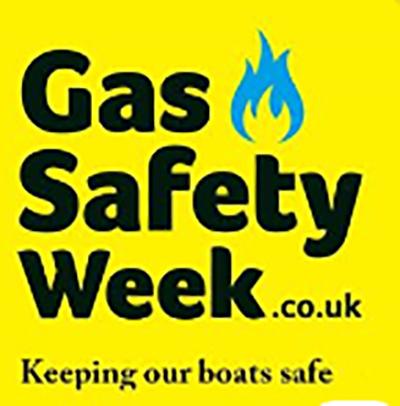Gas Safety Week 2017
Who said your neighbours’ gas is safe?
Sometimes you can’t get away from the fact you have to write a potentially dull article, but its National Gas Safety Week so we thought we should give it a go. Go onto Facebook and join a forum for advice and those armchair warriors will soon have you confused. So, rather than ask your mate, who knows a guy, who overheard a man in the pub-here are a few points to consider about your boat when it comes to BSS examinations, gas works and the all-important “Live-aboard status”. With an apology from the start about the use of some innuendos to tempt people to read it.
How many times have you heard boater’s say “this is my home. We have rights”? –probably not as often as BSS examiners are told, “I live at my parents” or, “I’ve got a land address”? In a recent CRT article, they believed 75 percent of boaters in London are living on their boats. So far, CRT and the EA haven’t used this data to take over the world or launch an attack. It seems you gain some protection from “the man!”, or to use the correct term, “the council and CRT” by declaring to be a live-aboard. So, is there a down side to shouting “I live on my boat” from the stern deck to a passing BSS examiner or gas engineer?
A standard BSS examination can be done by all BSS examiners. Regardless of whether you have gas or not, are a live-aboard, or living at mum and dads, we can all do them. So that’s good news; but we do have to talk about nipples first!
The HSE (Health & Safety Executive), - often blamed for banning toothpicks and writing “may contain nuts” on jars of peanut butter, also have something to say about boat life. They control the gas regulations in residential and commercial property, so, if you’re a live-aboard, you fall under their rules. While they may turn a blind eye to eating peanut butter with a toothpick, they won’t let just anyone play with gas - which makes sense when you think about it. If you are a live aboard, ANY work that ‘breaks into the Gas system’ must be completed by a qualified and registered gas engineer. Such ‘work’ includes installation, alteration, checking and removal of anything that goes beyond what the manufacturer states is acceptable in the user instructions given to the owner. “I am competent”, is often thrown into the argument, but, as only the registered engineers get the ongoing technical updates, it’s a bit like saying Windows 95 means you have a competent computer. Technically, it’s an argument (but not a very good one) you can make when you’re filling out your insurance claim for the most valuable thing you own, and are waiting for a decision from the loss adjustor. However most people soon realise that if your boat is classed as ‘in-scope’ of the gas regulations you need a Gas Safe Engineer.
If you do have gas on board and are a live aboard, there will be one of two methods of testing available to the BSS examiner. One method used is a leak detector (Alde bubble tester), which may be fitted to boats to allow owners to perform a simple leak check by pushing a button. As this is non-intrusive, any BSS examiner can do the full BSS examination when one of these is fitted.
The other method is a traditional gas test point using the test nipple (wasn’t as exciting as you ‘thought was it?). This involves undoing a plug and ‘breaking into the gas’, so it must be done by a Gas Safe Engineer on an in scope boat (live aboard/commercial/rented etc.). The BSS examination is still exactly the same, and can still be done by any examiner; the only difference on a live aboard boat is who touches your nipples, not the actual examination. The gas leak test must be performed by a gas engineer and must be witnessed by the examiner. That’s why many examiners also become gas engineers. It saves a lot of hassle all round and of course additional expense to the owner for such a small section of the BSS. See the BSS ‘Find an Examiner’ website page for a list of Gas Safe Registered BSS examiners in your area, or ask your examiner to arrange a joint visit with a Gas Safe Engineer if they are not Gas Safe.
So what about non live aboard boat owners known as ‘leisure boaters’? Most people, who work in the capital while owning a 2 bed 100k boat within 5 miles, are live aboard. Some people still prefer to claim they do a commute to the Midlands on a daily basis, and only occasionally stay on their boat. If that made you involuntarily raise an eyebrow then I have maybe written the article properly. After a major incident, when it really matters, proving the boat isn’t your ‘sole or main place of residence’ may be a little harder than you think. How will you actually prove that? The declaration of ‘leisure boat status’, isn’t checked by ‘the man’ at the point of licencing, though there have been calls to bring it in. As a genuine leisure boater, and there are many of them, you can have any BSS examiner take out a nipple and give it a check for your examination.
People often forget that while the BSS may enable licencing of a boat on a waterway, the Gas Safe Regulators and British Standards override it all with National (and International) Standards, some of these coming with a range of fines and criminal convictions available for the dishonest or ill advised. When you ring around looking for the person to install your cooker, it’s a good idea to add a quick call into one of the helplines to find out where you stand. As a minimum, your Gas Safe Professional will carry an ID card that is in date, have their picture, state ‘BOATS, LPG’ and have the types of appliances they are qualified to work on. You can also check the status of the engineer on the Gas Safe website. While there is no obligation for you to check their status on arrival, any loss adjustor will no doubt ask if you checked the engineers’ credentials prior to letting them into your home.
If you’re handy with a spanner, want a new cooker or water heater and want to give it a go yourself, what can you do? Firstly, if you are ‘in-scope’ of the Gas Safe Regulations, it is quite simple - you MUST put down your spanner, pick up your phone and call a Gas Safe Engineer. You can’t even touch your nipple.
Now comes the section that is discouraged by many, but the law doesn’t prohibit - leisure boater DIY gas work. If your boat is not a live aboard, not commercial, not rented or at a residential mooring then it may not fall under the Gas Safe Regulations. But, before you start, do make sure you have the support of the licencing authority where your boat is, your insurance provider, the moorings or marina where you are based and prudently the people you share the boat with. Any one of them may not have as much confidence in your ability to design and install a gas system as you have (especially if that wonky shelf you put up is anything to go by).
So, does this mean you can do what you want? Thankfully, it is not as easy at that. Standards exist to provide a framework for almost everything we do. It’s the Kite Mark you see everywhere once you start looking. PD 54823:2016 (check for updates before you start), will give you ‘guidance for the design, commissioning and maintenance of LPG systems in small craft’. I could go on about the contents of this riveting read, but you are not allowed to reproduce them. They are available online to buy, or take a trip to London and read them at the British library for free. What I will reproduce is advice given to me about Standards in general. “While you may not have a legal obligation to follow some Standards, in the event of an incident, the insurance adjustor/prosecution/coroner will be quoting from the document to decide on your competency level.” Advice worth considering as “ignorance” is no excuse.
Now you know what way you’re going with all this. So it’s time to go shopping for what you want. Where do you buy appliances and gas pipe etc.? First thing to do is research. You can’t just put anything into a boat, some of it is suitable for LPG, but not for a marine application. Caravans don’t move about once they are at the campsite, unlike boats that vibrate and even expand on the water. Appliance manufacturers treat the marine market very differently, and the dedicated marine market is actually very small. Most LPG appliances are designed for static use. So ‘installed to manufacturer’s instructions’ is now paramount. No point heading down to your local high street and asking them. You need to get hold of the appliance manual and see if it says ‘suitable for marine use’. If not, it’s a call to the manufacturer’s to ask them. The ‘Cointra’ series of water heaters is an example worth mentioning. It is sold online for boats, shops have said its ok for boats, distributer even said it was ok; but the manufacturer formally stated when asked “not for use in accommodation areas“. Turned out it is a Spanish water heater designed for stable blocks and not boats.
Rather than list endless examples or do’s and don’ts, it may be quicker to summarise as you could be nodding off already. There is a lot of technical design and planning that goes into a professional installation from pipe sizing, regulator flow rate, cylinder off-take etc. Most appliance manuals will state “must be installed by a competent person”, or go the whole way with “by a Gas Safe Engineer”, and if you haven’t read the relevant Standard or are non-marine Gas Safe Registered then you maybe are not. Proceeding on this basis may affect your guarantee, insurance and may even stop you buying parts at some shops who will only sell to Gas Safe registered engineers. You will certainly struggle to access the manufacturer technical helplines because they don’t want non Gas Safe people working on their stuff and will void warranties when not installed by a Gas Safe engineer. So, some proper checking early on will save you a lot of pain later on. Sometimes it’s just easier to get a professional in - even if it means you can’t touch your nipple yourself.
Article by Ron Gooding







